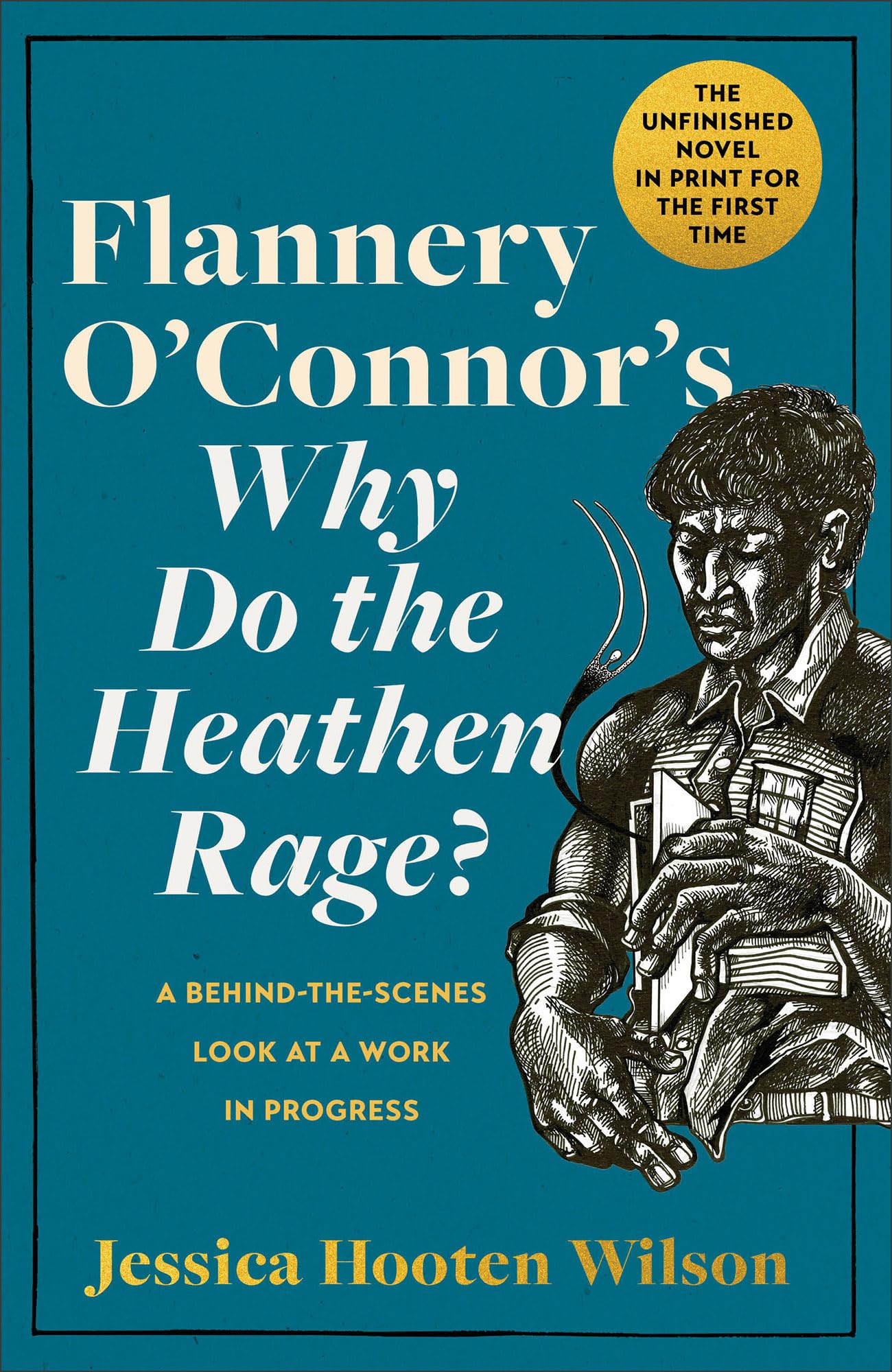معلومات عنا
دعم العملاء
احصل على التطبيق

قم بتوجيه الكاميرا لتنزيل التطبيق
حقوق الطبع والنشر © 2024 Desertcart Holdings Limited



Brazos Press Flannery O'Connor's Why Do the Heathen Rage?: A Behind-The-Scenes Look at a Work in Progress
M**R
Am I counted among the heathen?
A fine glimpse into an unfinished work. I am not an academic but I appreciate both Flannery and JHW.Both continue to challenge me in looking at literature in a new way that helps my ever evolving faith.Like many of Flannery's stories, I ask myself which character am I? And in this case ask "am I the heathen?"
D**N
THIS IS A GOOD STUDY AND WORTH READING
FOR THOSE WHO ENJOY AND RESPECT FLANNERY O'CONNOR, THIS WAS A GOOD STUDY, SENSITIVELY AND WELL RESEARCHED.
G**N
Flannery O'Connor is guffawing over this very slim book.
Flannery O'Connor has become a cottage industry for certain academics. I believe this author is one of those.The book is really short on O'Connor's so-called unpublished novel and long on the author's ruminations.I regret buying this drivel.
N**R
More Jessica Hooten Wilson than Flannery O'Connor
Despite dealing for years with a chronic disease, complications of which took her life at 39, Flannery O'Connor maintained a rigorous, professional work regimen. She had a set routine that she didn't vary from if at all possible, and most of the fiction (and posthumously, a good deal of her nonfiction) was studiously considered, reconsidered, polished, and repolished until it met her own exactingly high standard required for publication. An exception to this was a planned third novel, left unfinished at her death, an enigmatic work that fans of O'Connor could only experience through whatever hints were recorded in her letters to friends. Until now, that is.I consider Flannery O'Connor to be possibly the greatest American writer of short fiction in the 20th century, as well as one of the last great letter writers, a person of profound spiritual insight, and simply a fascinating figure in general. All this is to say, I couldn't have been more excited to buy this. Unfortunately, this release is, for me, a huge disappointment. The advertised 378 pages of written material for 'Why do the Heathen Rage?' is slimmed down to under two hundred pages, with approximately a third of that being snippets of early drafts. Hardly any of the other two-thirds of the book is information regarding what O'Connor had written. More often we see critical analysis by Hooten Wilson, who spends pages agonizing over the use of the n-word in fiction and pondering if white writers can write black characters (a question that decades later "has not been answered", she opines). Inadvisably, she resorts to her own interludes of fiction, recounting what O'Connor's day may have been like while she was writing, what she may have said, thought, and so on. Even more inadvisably, Hooten Wilson writes her own "ending" to O'Connor's unfinished novel, imitating O'Connor's famous moments of grace while also tweaking a few things to better reflect social justice, grace, and conversion as we would understand it in our own enlightened age. Hooten Wilson admits that writing her own ending to a great writer's novel that exists only in snippets is "presumptuous." My own choice of adverb might be "preposterous," along with the adjective "baffling."I don't want to be unjust. Jennifer Hooten Wilson is listed as the "author" of this work. Despite my criticisms, clearly a lot of effort went into making this presentable. It is clear from what is there that there simply isn't much "there" to be turned into a story. There are a small handful of highly interesting passages, signaling the possibility of a clear new direction from O'Connor, differing greatly from the fiction she did complete. It is wonderful to now have these passages available. It is not clear to me, however, that O'Connor could have made this direction work, and generally what does exist seems more like rudimentary (by O'Connor standards, at least) sketches of characters, scenes, and concepts, that would have surely changed and developed substantially had O'Connor continued to write. One reason why it feels as if O'Connor was changing tack to directly tackle present day social issues may be the simple fact that she had a story idea, clearly inspired by her own life and the issues Southern society was struggling over at that time, and never developed it beyond first act material.How could this have been done better? To be fair toward Hooten Wilson, the social issues she ponders are explicitly raised by what Flannery O'Connor had already written. It is worthwhile to look at those questions. In my opinion, however, this work would have been much better served if less space was spent contextualizing O'Connor and more devoted to simply facilitating the reader's ability to experience O'Connor's unwritten work, detailing the development of the text, how many different drafts exist of different passages, and so on. We could have gotten a fascinating look at O'Connor's developmental process. With the text out there, there would have plenty of time for scholars such as Jennifer Hooten Wilson to provide what they see as the takeaways and discuss what O'Connor may have been right or wrong about. As it stands, however, I'm left to wonder just how much of those 378 pages of material is publishable, and what gems from Flannery remain to be eventually uncovered.
S**.
readable
Hooten Wilson is careful not to put words in Flannery's mouth - thank you! If you are a serious fan or a student of O'conner's work and life, you will find this interesting. The author has clearly put in hours of careful research, which she organizes in an appealing fashion. However, if you just enjoy reading her (F O'C), reread the stories:-)
ترست بايلوت
منذ شهرين
منذ 3 أسابيع